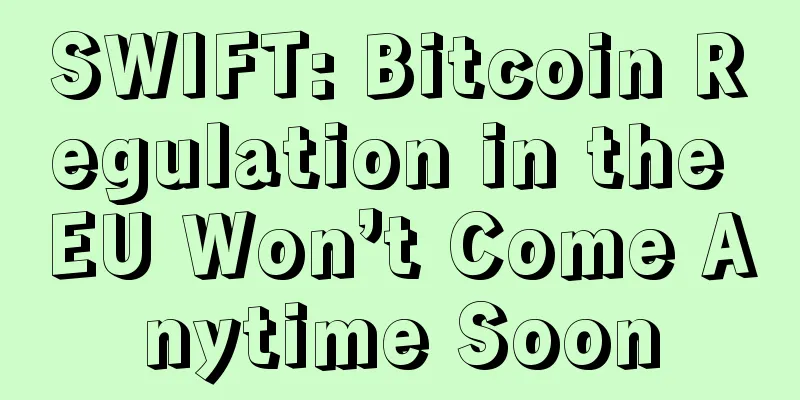SWIFT: Bitcoin Regulation in the EU Won’t Come Anytime Soon

|
According to a new report from the Society for Worldwide Interbank Financial Telecommunication (SWIFT), it will take many years for the European Union (EU) to achieve a unified framework for cryptocurrency regulation. The report states that there is a lack of compelling reasons to include virtual currencies in the EU’s existing legal framework, set out through the revised Payment Services Directive (PSD2) and the Fourth European Anti-Money Laundering Directive (AMLD4). PSD2 was approved by the European Union in October this year and consists of a new set of consumer payment protection rules aimed at promoting the development and use of innovative online and mobile payments. Meanwhile, the AMLD4 that has been produced is consistent with the recommendations issued by the Financial Action Task Force (FAFT) in 2012 to strengthen the EU’s anti-money laundering (AML) and counter-terrorist financing (CTF) laws. The report states: “The recent legislative process for AMLD4 and PSD2 has not paid sufficient attention to this development and has generally not addressed virtual currencies. While AMLD4 may be interpreted as extending to virtual currencies, the precise extent to which this will succeed in preventing their misuse for anti-money laundering and terrorism financing purposes remains to be seen.” “Third, future legislation, such as the potential EMD3, remains a development to be closely monitored,” the report states, adding: “However, in order to extend the potential new legislative framework from e-money to virtual currencies, the concept of e-money would require a fundamental reconfiguration.” As multi-purpose prepaid cards begin to lose ground and web-based money services move closer to payment services, the original purpose of the e-money framework is rapidly losing its relevance. “Redefining the definition of virtual currencies could breathe new life into the concept and expand the legal framework to include recent developments such as cryptocurrencies,” the report reads. The SWIFT Association, an organization established by SWIFT to fund its own research, has already started separate research activities on bitcoin and blockchain technology, receiving grants last July. According to the organization, the new working paper is intended to provide recommendations for financial practitioners and regulators.
|
<<: SWIFT: Bitcoin Regulation in the EU Won’t Come Anytime Soon
>>: Bitcoin startup BitPesa sues Kenyan mobile payments giant Safaricom
Recommend
What does a mole on the back of a woman's right hand mean and what impact does it have on her fate?
The fate of a person living in this world is dete...
4 types of men with different facial features are destined to be poor and have a hard time having a good life
Everyone hopes to have a good life after getting ...
Where is the mole of misery on the neck? Do women with the mole of misery have unhappy love lives?
Moles are not only the deposition of melanin but ...
UK Chancellor of the Exchequer: Digital currencies will play an important role in financial markets
Bitcoin House News , November 12 , CoinDesk repor...
Reviewing Filecoin after the noise: Price and ecological trends after the disappearance of FIL6
Author | Taihe Capital Editor | Colin Wu (This ar...
Ethereum Foundation Blog: The last testnet is about to be merged. What do we need to do?
After several years of hard work bringing Proof o...
China and South Korea further discuss cryptocurrency policy
South Korea's Minister of Strategy and Financ...
What does it mean when the skin under the left eye twitches?
I believe everyone has experienced eyelid twitchi...
In the era of "blockchain+", how does Yuelian change users' reading habits?
At the 2017 Summer Davos Forum held in Dalian, Li...
With lunch coming up, can Justin Sun convince Buffett to invest in cryptocurrency?
On May 31, 2019, Berkshire Hathaway Chairman and ...
Are men with square faces good at manual work?
In life, everyone is good at different areas. Som...
What does it mean if there are many small red moles on the arms?
Everyone has moles. Some people who are very care...
What does it look like when a woman is rich? Which parts of her face can tell
Some people are born rich, while others are born ...
Only 20% of the hashrate is needed to attack BTC? Selfish mining author proposes new BDoS scheme, sparking debate
Preface: Researchers from Cornell University and ...
Some opinions on domestic listed companies publicly buying Bitcoin
Some opinions on domestic listed companies public...









